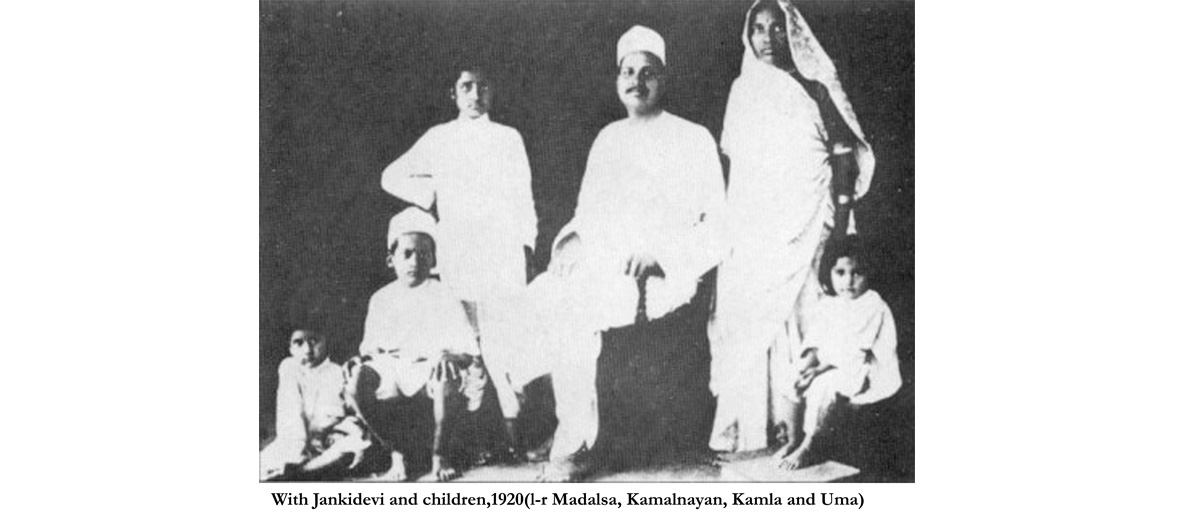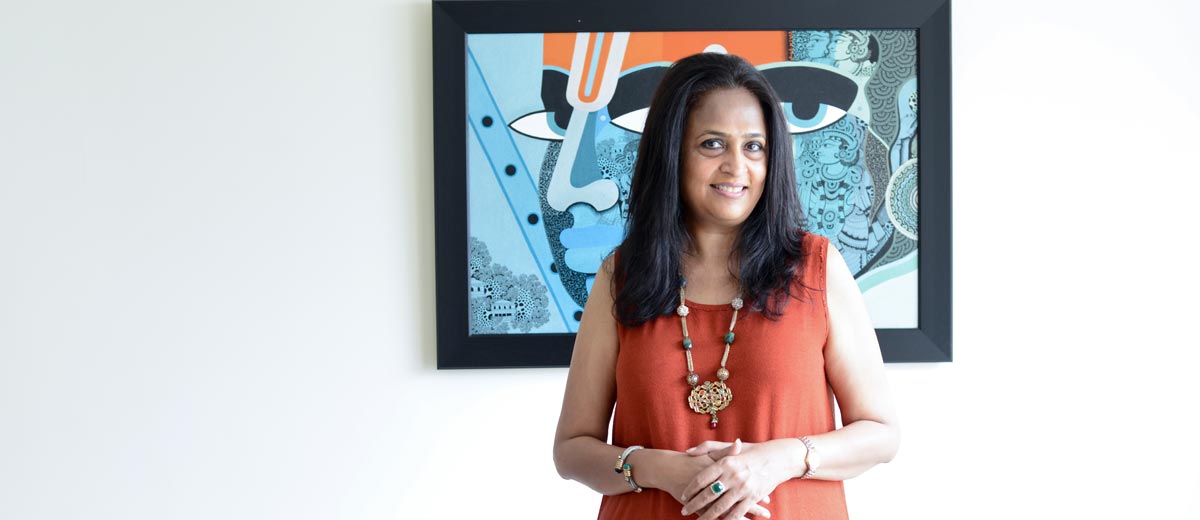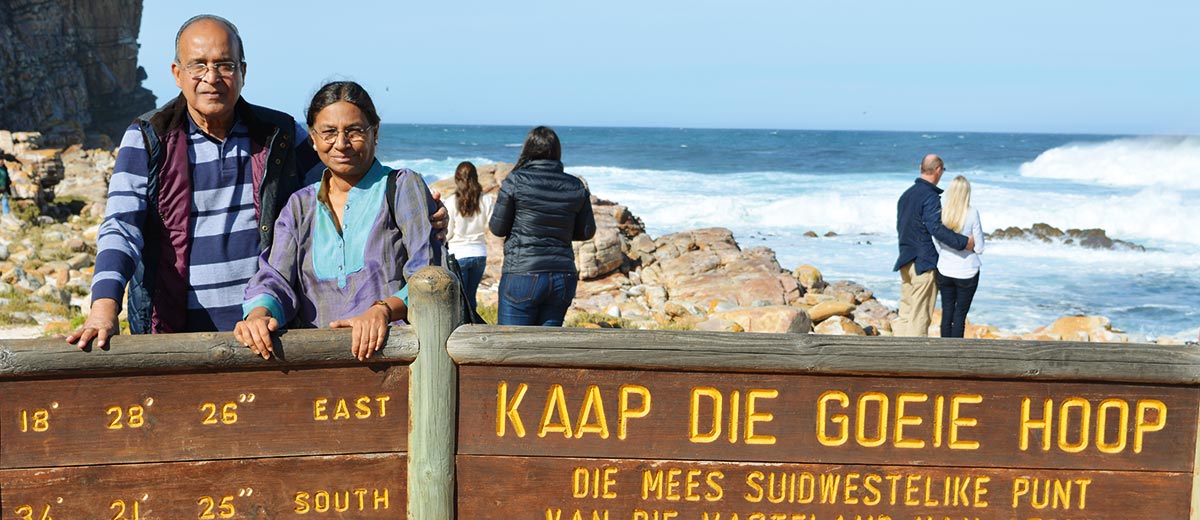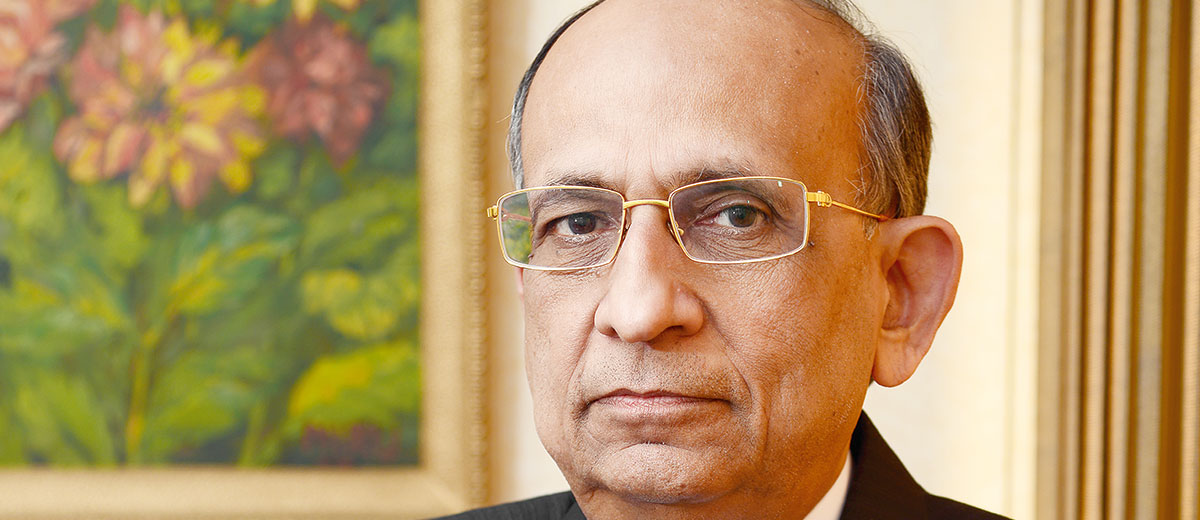Infusing Vitality
 An impressive track record and a wide portfolio of products catering to the speciality generics drug market have made Ajanta Pharma Limited one of the top 50 pharmaceutical companies in India. Brothers Yogesh and Rajesh Agrawal let us in on their journey after taking over the reins of the company, the secrets of the company’s remarkable transformation from a Rs 70-crore company into a successful, Rs 1,800-crore entity, and why the best is yet to come.
An impressive track record and a wide portfolio of products catering to the speciality generics drug market have made Ajanta Pharma Limited one of the top 50 pharmaceutical companies in India. Brothers Yogesh and Rajesh Agrawal let us in on their journey after taking over the reins of the company, the secrets of the company’s remarkable transformation from a Rs 70-crore company into a successful, Rs 1,800-crore entity, and why the best is yet to come.
CLARITY OF PURPOSE IS THE first step towards building a successful, profitable business. The organisation must act as one, aligned with a single strategy and with a clear goal. But, as they say in business, a strategy is only as good as its execution,” says Yogesh Agrawal, the 44-year-old managing director of Ajanta Pharma Limited, a speciality pharmaceutical formulation company based out of Mumbai. Rajesh, his 40-year-old brother, and Ajanta Pharma’s joint managing director, concurs: “Implementation [of strategy] is more important than strategy formulation. The management and employees need to be skilled, clear about the roles they need to play and uncompromisingly committed to the task.”
These words give a clear idea of the kind of emphasis that the duo place on meticulousness and sincerity. However, it was their ability to think differently, think big and challenge the status quo, that made the brothers—after assuming control 15 years ago—transform the then R70-crore company into the R1,800-crore entity that it is today.
An early start
The beginnings of Ajanta Pharma Limited can be traced back to the early ’70s when founder Purushottam Agrawal, after earning his Bachelor of Pharmacy degree from Nagpur University, relocated from Risod (a city in Washim district of Maharashtra) to Aurangabad, in search of better prospects. With a seed capital of R20,000 (which included R10,000 borrowed from a government bank), he established Ajanta Pharma as a company that specialised in repackaging generic products such as eucalyptus oil and boric acid. A few years into the business, Purushottam’s younger brother, Madhusudan and elder brother Mannalal (Yogesh and Rajesh’s father) joined hands with him.
Research is an essential tool for any blossoming business, and Purushottam’s outlook was no different. It was through research that he discovered a product that could bring in significant profits for the company: ‘Pinkoo Gripe Water’. It was subsequently manufactured at the company plant in Aurangabad and launched in 1979. By late 1980s, Ajanta Pharma had set up another manufacturing plant, ventured into the OTC (over-the-counter) segment and built a strong presence in the rural markets of Gujarat and Maharashtra, with brands such as Apcose-D glucose powder and Trimol analgesic. It was during these years that the company shifted base to Mumbai, and Rajesh talks about how the first office in Mumbai was set up in an 800 sq ft space at Kaliandas Udyog Bhavan, Century Bazaar. In 1990, the company launched 30-Plus, an OTC energiser capsule targeted at middle-aged men. “30-Plus became an instant hit among consumers after Bollywood veteran Jeetendra endorsed it in a television commercial. However, not many people are aware that this was the only product advertised by Jeetendra in his career,” Yogesh reminiscences. Ajanta Pharma started distributing drugs to government health agencies in India, and in 1992, began exporting to other countries.
The younger generation steps in
After getting a bachelor’s degree in business management from Johnson & Wales University in Rhode Island, USA, Yogesh joined the family business in 1995 and began learning the ropes of the business. “At that time, the company was involved in some joint ventures in Commonwealth of Independent States (CIS), so I got the opportunity to learn more about the dynamics of the projects, the equipment involved, finance, etc,” he says.
However, nothing prepared Yogesh for what was to come. When barely six months into the business, he was asked to set up the Mauritius subsidiary, Ajanta Pharma (Mauritius) Limited. As Yogesh assumed his new responsibilities, he harboured no illusions about the magnitude of the challenge he was facing—building a subsidiary with an independent manufacturing base that would cater to the West African market. “It was a situation like when you can’t swim and they throw you into the pool. You either swim or you drown.”
Not one to shy away from a challenge, for the next five years, Yogesh as the CEO did everything from sourcing funds to tying up with banks, from recruiting people and training them to evaluating the market, from devising strategies to selecting products from Ajanta Pharma’s portfolio for retail. The very first order he got was from a company [called Intrachem] in Zambia for 160,000 US dollars. “It was a time for celebration for us,” he says. His stint in Mauritius proved to be invaluable in terms of the experience he garnered from it, and Yogesh came back to India in 2000 and joined the main operations of Ajanta Pharma.
Meanwhile, Rajesh, the younger brother, graduated in business studies from University of Buckingham, UK, and earned his MBA from Bentley University in Massachusetts. “After graduating, I worked at Ajanta Pharma for six months to gain an understanding of our domestic business and international operations. After finishing my MBA, I worked at a healthcare firm in Boston, USA, for less than a year, before joining Ajanta Pharma in 1999.” Yogesh intervenes, a hint of pride creeping into his voice, “Did you know that Rajesh finished both his courses well ahead of time? Well, he finished his bachelor’s degree in two years, and his MBA, in one year and three months.”
Rajesh responds with a smile.
Taking charge of the business
In 2002, the senior generation of Agrawals handed over the reins of the ailing business—it had posted a consolidated loss of R1 crore in 2001-02 on sales of R89 crore, with debts totalling to R130 crore—to Yogesh and Rajesh. The pharmaceutical industry in India being extremely competitive and dynamic, the duo had already understood that they would need to have a clear vision of where they would be taking the company in the next five years. Rajesh says, “We wanted to make Ajanta Pharma Limited a profitable business that is sustainable for a longer period of time.”
Till the early 2000s, Ajanta Pharma was mainly into herbals, OTC products, bulk drugs [also called active pharmaceutical ingredient (API)], and institutional sales. Rajesh says, “Since the company’s vision was scattered in different directions, we took a decision to cut back and only focus on those markets and segments that we wanted to be in. We opted for manufacturing and marketing of speciality branded generic drugs, after which began the tedious process of withdrawing institutional sales from many other markets and making the push to establish a branded generic business in India and international markets.” The duo then turned their attention towards establishing a strong presence in the highly lucrative markets of India, West Africa, Middle East and the CIS.”
Innovate to stay ahead
It was the brothers’ emphasis on innovation while developing products that played a major role in orchestrating the turnaround of Ajanta Pharma. Rajesh says, “A pharmaceutical company that needs five to seven years to ready a new product for the market has to think, act and plan from a long-term perspective. Differentiation is very important, not only from the competitive angle, but also from the point of view of how you are perceived in the buyers’ mind.” A big factor that came into play toward achieving this was Ajanta’s core culture of speed. Yogesh says, “Rajesh took on the responsibility of constructing our product portfolio for the Indian market and I did the same for export markets. Ajanta wasn’t a big name then, but what worked in our favour was the practice to keep our ear on the ground, understand what the market needed and then facilitate the launch of new products through our R & D centre, months ahead of big players. Many a time, we would be the only company offering a certain product, and doctors would have no alternative but to come to us.”
Retaining the workforce
The road ahead was fraught with challenges, and one challenge that the Agrawals faced initially was retaining the workforce. While retaining top talent had been less of an issue in the past, the shifting tides of the company in 2001-02 created new currents in the workplace. “When we both took on the leadership position at Ajanta Pharma, we received perhaps 10 resignations in the first few weeks itself!” Yogesh says. So, how did they deal with this problem? “I think people started viewing the strategies that we were looking to implement, our meticulous execution and the positive difference it was making to the company’s future prospects in good light,” Rajesh says.
The company today
Today, Ajanta Pharma Limited is engaged in the development, manufacture and marketing of quality finished dosages in domestic and international markets. Ranked 33rd in the Indian pharmaceutical market (as per IMS MAT December 2015), the company continues to harbour a clear focus towards commercialising generic products and combination products (for anti-malarial, cardiovascular, dermatological, pain management, male erectile dysfunction, musculoskeletal and ophthalmological treatments). It has expanded its reach to over 35 countries in  Africa, Asia, the Middle East, CIS and Latin America. Ajanta Pharma derives a third of its revenue from domestic and rest from overseas market. Around 1,400 of its products are registered, while over 1,600 products are waiting for approval in various countries. For 2014-15, the company posted a consolidated revenue growth of 23 per cent at Rs 1,453 crore and a net profit after tax of R310 crore, while their market capitalisation as on March 31, 2015, stood at Rs 10,769 crore. The company posted EBITDA growth of 34 per cent at Rs 505 crore. Yogesh says, “For 2015-16, we expect to continue the growth momentum.”
Africa, Asia, the Middle East, CIS and Latin America. Ajanta Pharma derives a third of its revenue from domestic and rest from overseas market. Around 1,400 of its products are registered, while over 1,600 products are waiting for approval in various countries. For 2014-15, the company posted a consolidated revenue growth of 23 per cent at Rs 1,453 crore and a net profit after tax of R310 crore, while their market capitalisation as on March 31, 2015, stood at Rs 10,769 crore. The company posted EBITDA growth of 34 per cent at Rs 505 crore. Yogesh says, “For 2015-16, we expect to continue the growth momentum.”
The company ventured into the US a few years ago and has launched four products, including Risperidone (tablets for treating schizophrenia and bipolar disorder) and three generic versions of Montelukast Sodium regular tablets, chewable tablets and granules used for treatment of asthma and seasonal allergies.
On the infrastructure front, Ajanta Pharma operates with five state-of-the-art manufacturing facilities in India: a new facility at Dahej, Gujarat, and four in Aurangabad, of which one manufactures Active Pharmaceutical Ingredient (API), which is primarily for captive consumption. Yogesh says, “We have invested around R220 crore in our new manufacturing facility at Dahej, which, spread over four lakh square feet, has the latest equipment and meets stringent requirements of the USFDA.” All of Ajanta Pharma’s plants ensure a zero effluent discharge, and the company has also arranged for the on-site treatment of effluents. Ajanta Pharma employs over 6,000 people worldwide; their R & D centre in Mumbai has over 550 scientists.
Family ties
So, what is it like working together? Rajesh replies, “My elder brother joined the business years before I did and brings so much experience to the table. We take each other’s opinions and have a very clear separation of roles—I handle operations in India and Southeast Asia, while he handles business in Africa, Middle East, and so forth.” While Yogesh is the proud father of a 19-year-old daughter and a 14-year-old son, Rajesh has a 11-year-old son and a 9-year-old daughter. “It is a joint family system for us.” The brothers have a sister (who’s married). Their uncle Purushottam has a daughter and a son, Ravi—who heads the solar power and infrastructure businesses. Yogesh says, “We have invested more than Rs 300 crore in a 25 MW renewable energy plant. We are also developing a 250-acre industrial park at Aurangabad.” Meanwhile, Madhusudan’s son Aayush has aggressively ventured into the Quick Service Restaurant (QSR) segment and founded Wok Express, a Mumbai-based chain, which is growing at a rapid pace.
Roadmap for the future
When conversation veers towards the brothers’ plans for Ajanta Pharma’s future, Yogesh says, “We plan to invest about R300 crore in a three lakh square feet formulation facility in Guwahati, Assam, which is expected to be completed by March 2017. We also plan to invest another R100 crore in our R & D operations, and in the next two years, we plan to pursue a very aggressive capital expenditure plan of approximately R500 crore.” Rajesh, in his unassuming way, encapsulates all that Ajanta Pharma stands for today, by saying: “We have a clear focus to keep on innovating, provide patients with better products, increase our reach to different countries and markets, and most importantly, keep on growing.”










